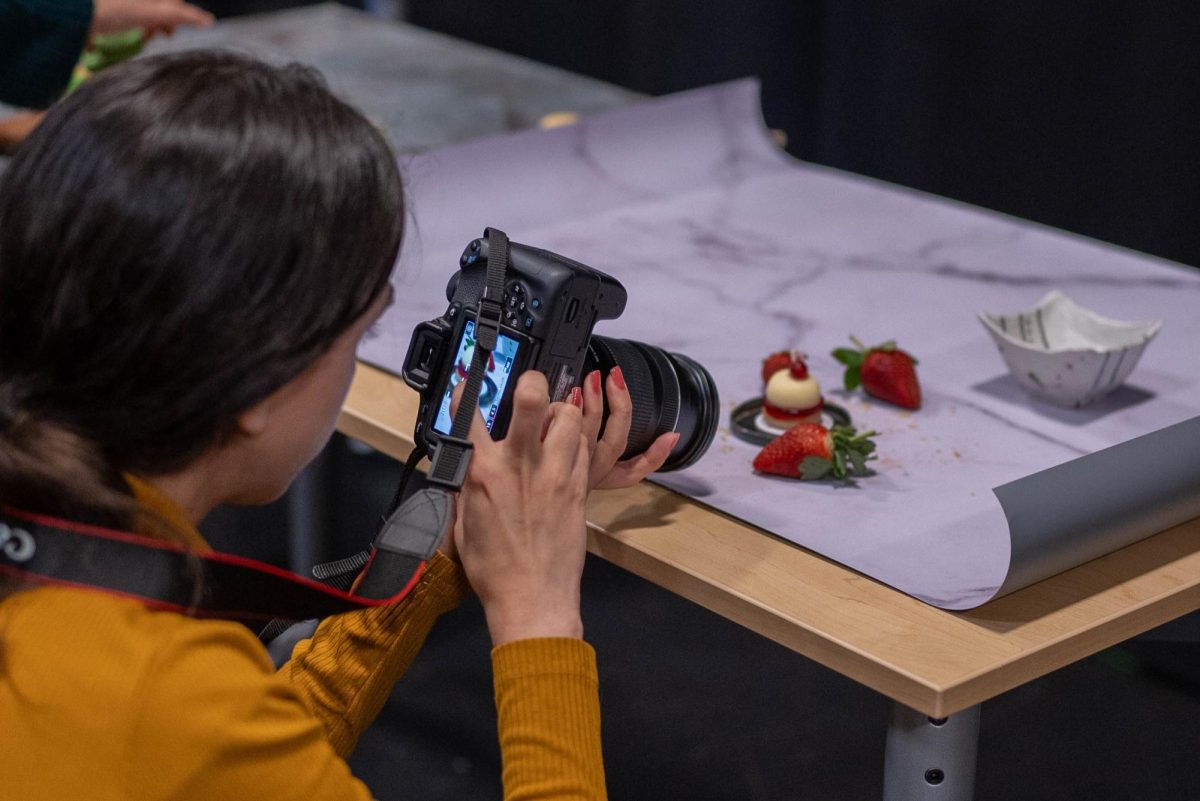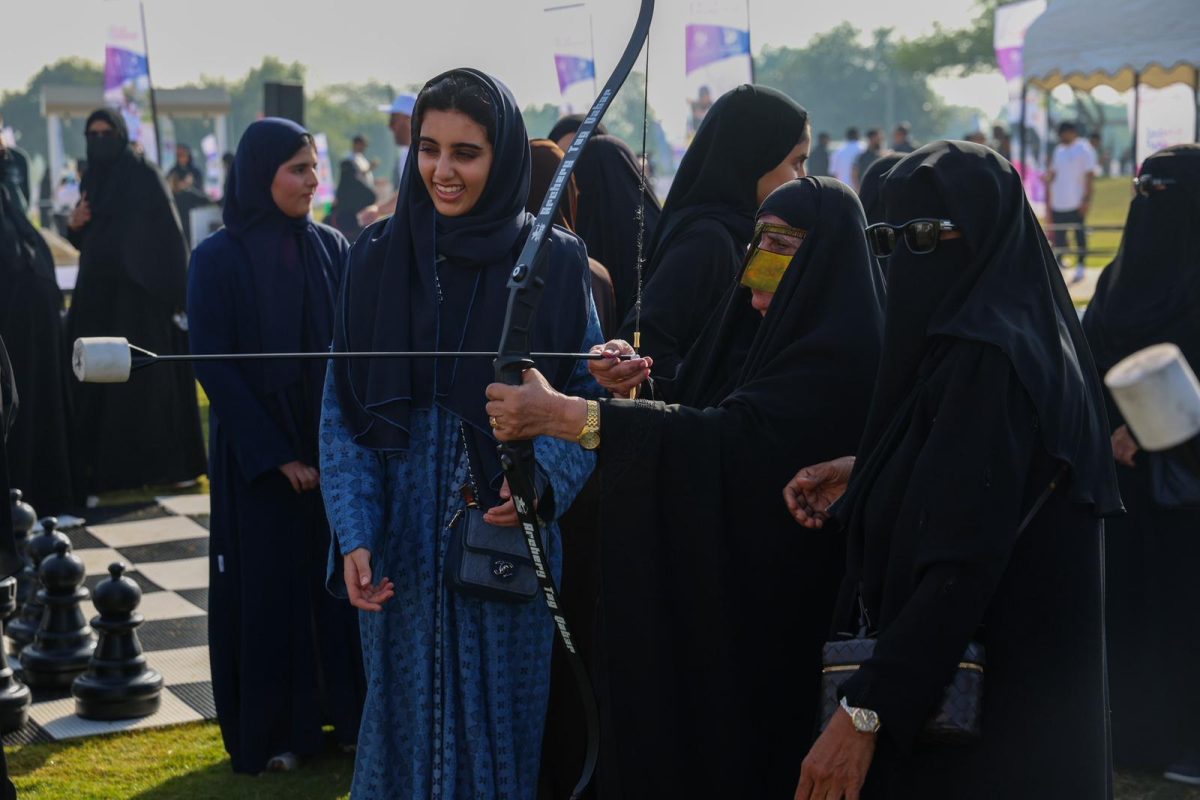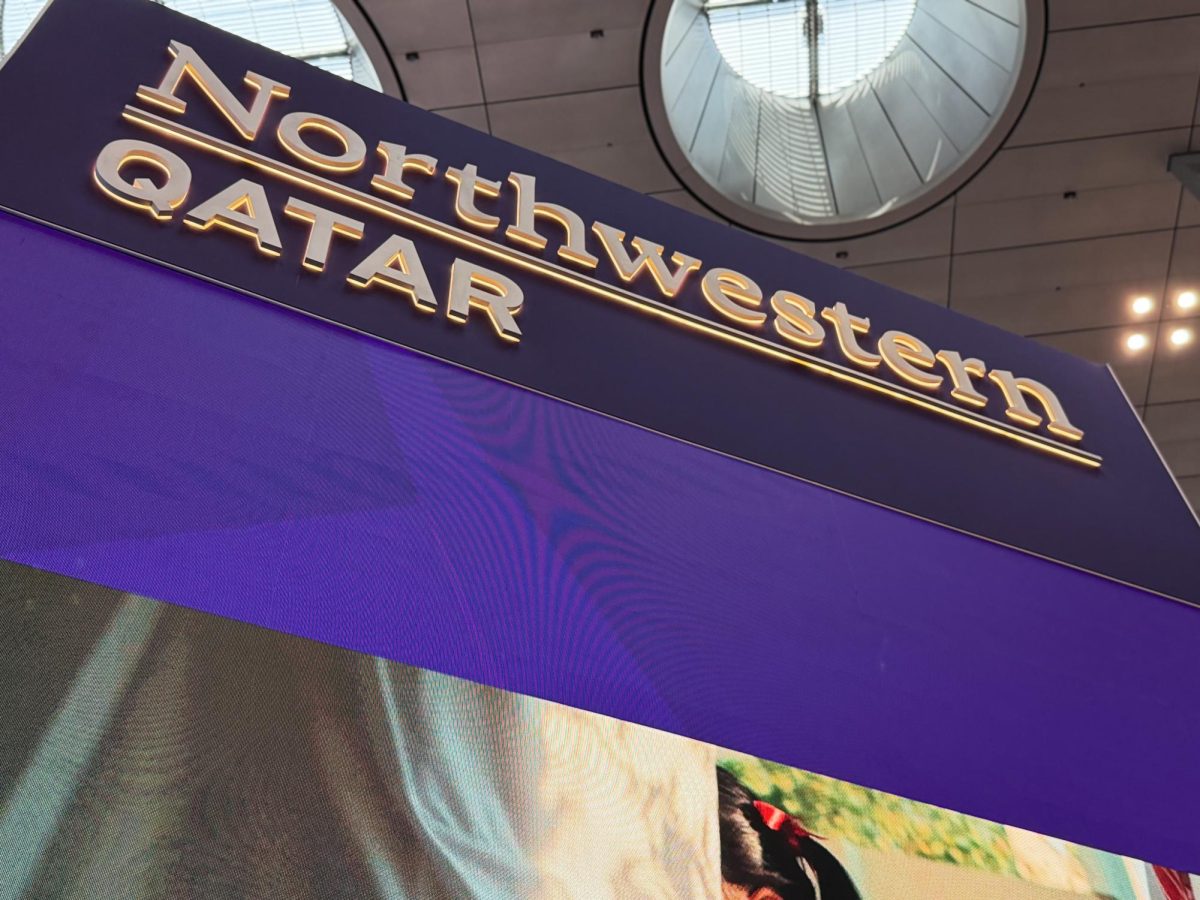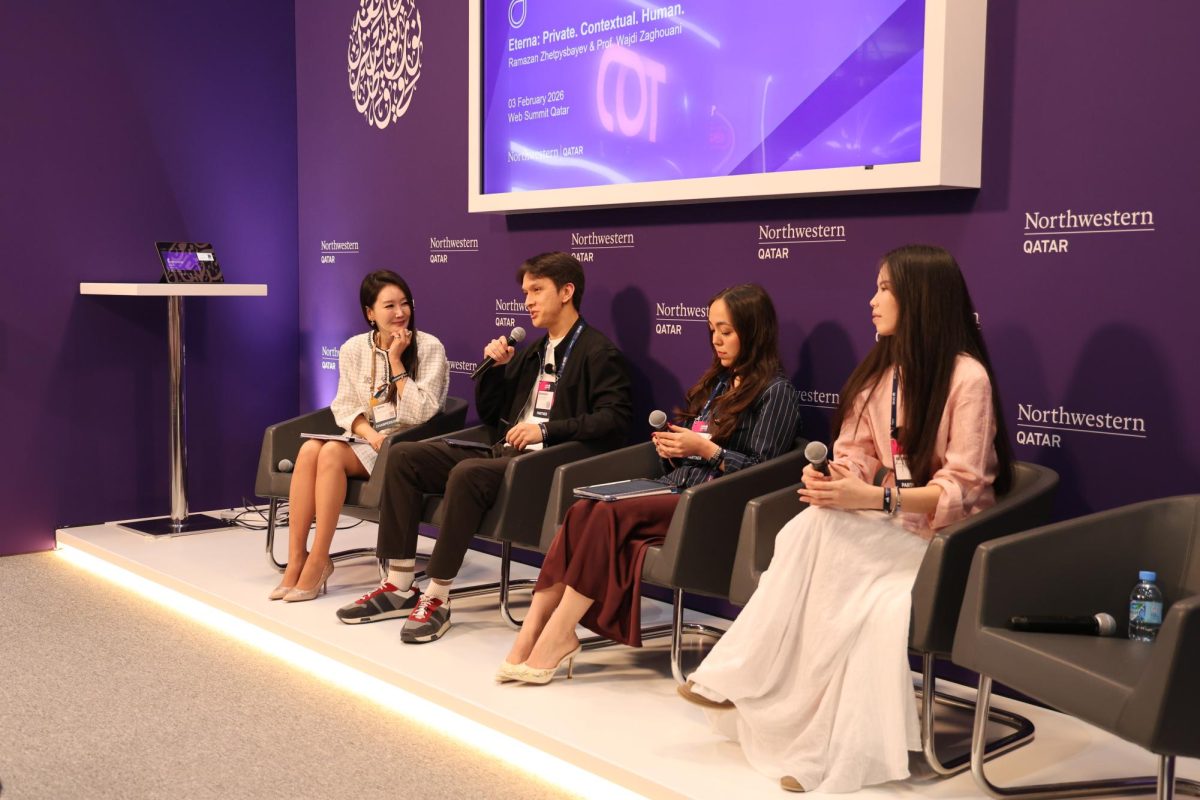With social media woven into the fabric of daily life, the phrase “camera eats first” has become a common ritual at dining tables. Pausing to snap the perfect shot before a meal is now as essential as the meal itself. At Northwestern University in Qatar (NU-Q), students took a closer look at this trend through a Fujifilm Food Photography workshop and discovered that capturing the essence of a dish goes beyond a simple click.
Organized by the NU-Q Photography Club in collaboration with Fujifilm, the 3-day workshop featured theoretical and hands-on practice sessions led by food photographer Aref Al-Ammari. With more than seven years of experience, Al-Ammari brought a box full of studio props, including background boards, tableware, and bakery items for students to use to experiment with their creativity. The 12 students who attended the workshop had five hours to create unique setups and submit one picture each for the final photo exhibition.
“As someone who occasionally takes pictures of their food with a phone, I was surprised to find that food photography requires much more time and effort than I expected,” said Bayan Kobenova, a communications sophomore at NU-Q.
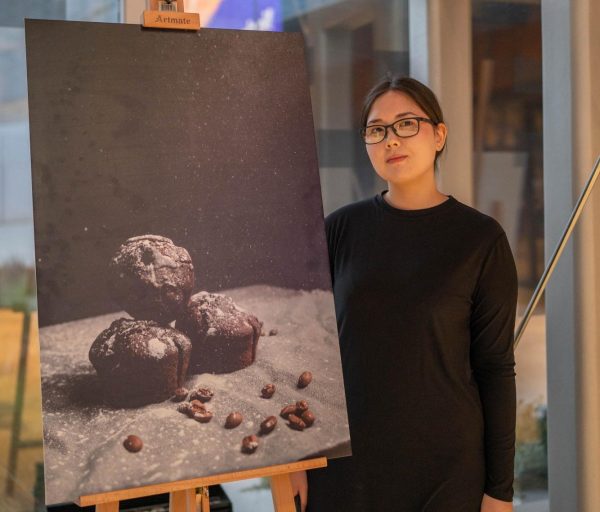
Kobenova chose to photograph something special that evoked a warm childhood memory. With her parents working all day, she taught herself to bake chocolate muffins at the age of nine, hoping to surprise them with a sweet treat when they returned home. To reflect this, she took a photo of powdered sugar falling on the muffins.
“My photo turned out looking very magical, much like how I feel about my childhood,” she said.
While Kobenova was perfecting her photos, journalism sophomore Muhammad Shayan Ahmad aimed to capture the authenticity of the baking process. He meticulously arranged a grape pastry at the center of a creatively cluttered table, surrounded by various baking ingredients and tools.
“Most of the pictures showed the end product. But I wanted to show how the pastry was made,” he said. “It was quite difficult because I had to buy eggs, sugar cubes, and grapes from outside.”
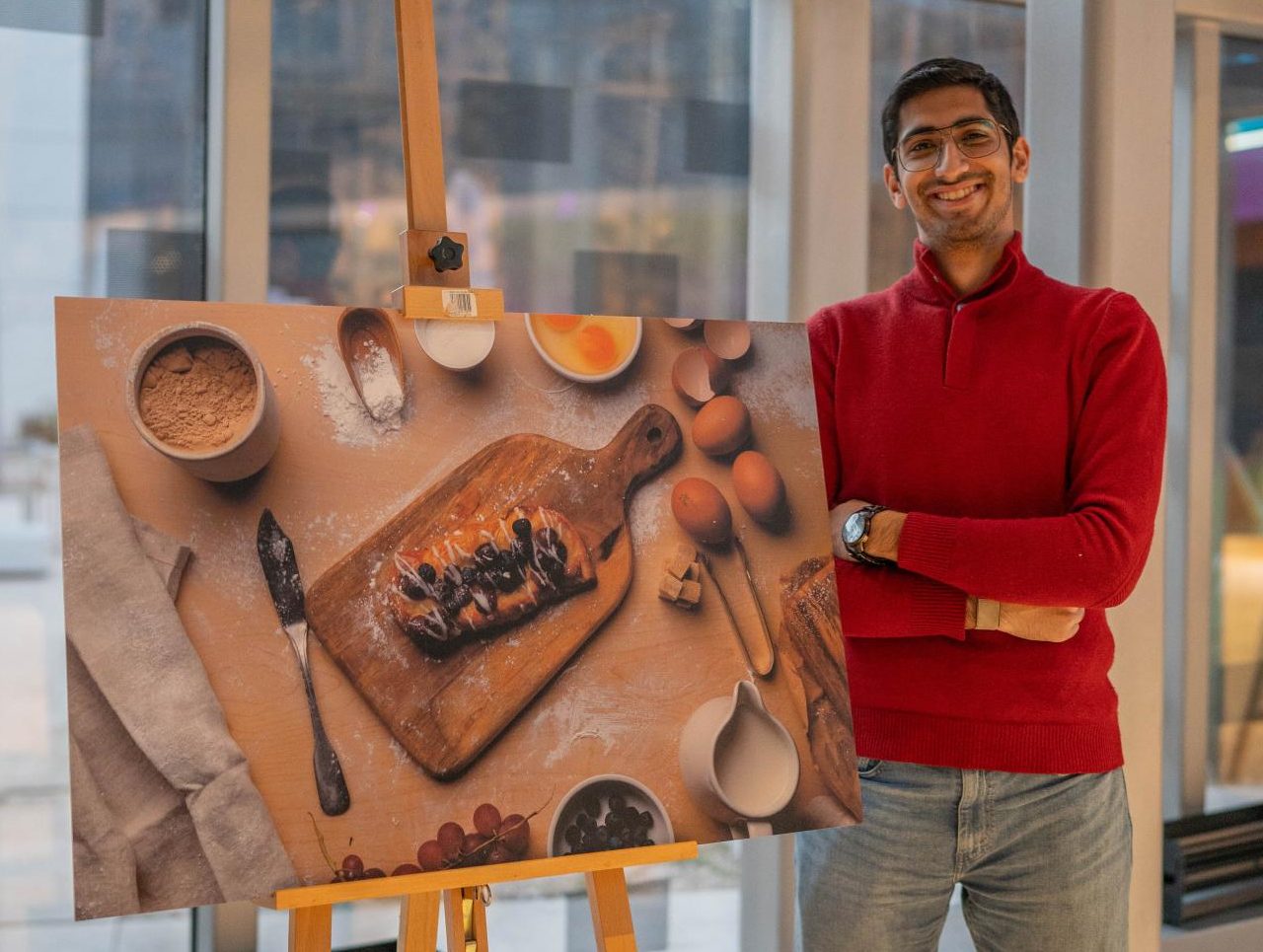
For him, the most challenging aspect of the experience was handling the tight deadline with a limited selection of items and decorations. Additionally, he had to wait for his turn due to the equipment management. Despite these struggles, he remains captivated by the discovery of food photography as a professional art form.
Unlike Kobenova, he initially viewed the practice as highly demanding and dependent on props. However, after the workshop, he realized he could still make people crave supermarket pastry without fancy equipment or abundant resources.
“Genuinely, if there’s one field of photography I would ever want to pursue, it would be this,” Ahmad said.
Beyond the process of taking photos, food photography is fundamentally intertwined with building business relationships with restaurants and cafes. This was the key insight communications freshman Yaqi Huang discovered during the theory session.
“This workshop taught me that to become a professional photographer, strong communication and interpersonal skills are just as important,” she said.
With these newfound understanding and skills, the 12 students successfully displayed their works at the NU-Q Forum. Al-Ammari took the time to privately speak with each student in front of their work, offering personalized feedback.
“Food photography is not something interesting anymore because of social media,” he said. “But working with students to help them understand its vital role in the restaurant industry as a professional art is what makes me happy.”
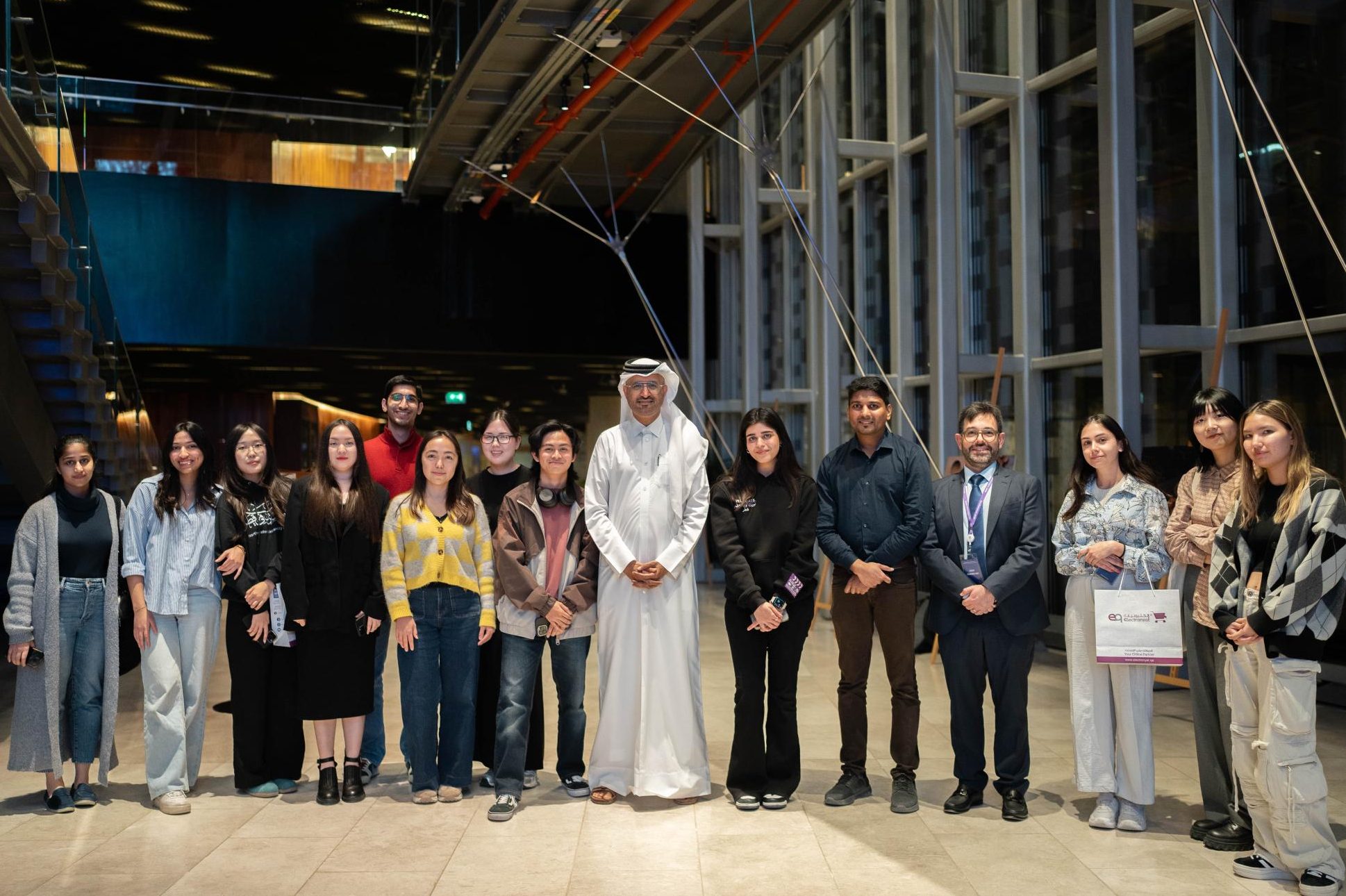
The event concluded with a small awards ceremony, where the top three photos were recognized for their professionalism and artistic vision. In third place was Gabriela Gonçalves, a communications senior. Second place went to Nomin Erdenetsogt, a journalism sophomore. The first place honor was awarded to Nadia Khan, a communications sophomore, for her outstanding work.
“Winning gave me a sense of fulfillment; however, most of the contestants were my friends, so to me, we all won,” Khan said.
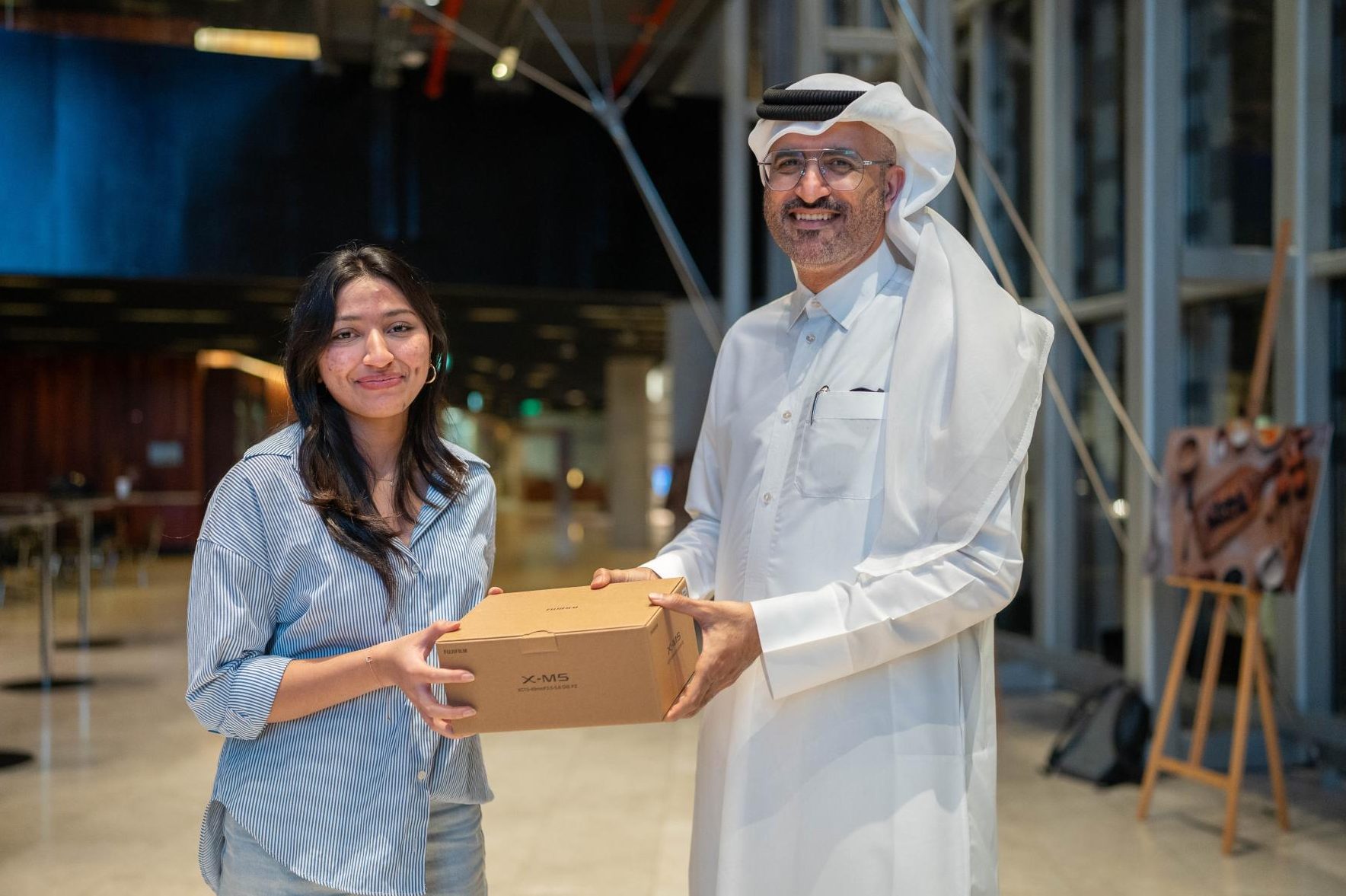
This sense of mutual support was a key aspect of the workshop, with students working in pairs and offering advice to one another. The workshop not only imparted valuable lessons but also provided students with an opportunity to bond, challenge, and learn from each other. As the NU-Q Photography Club looks forward to more events, the students remain inspired to continue refining their photographic talents.

